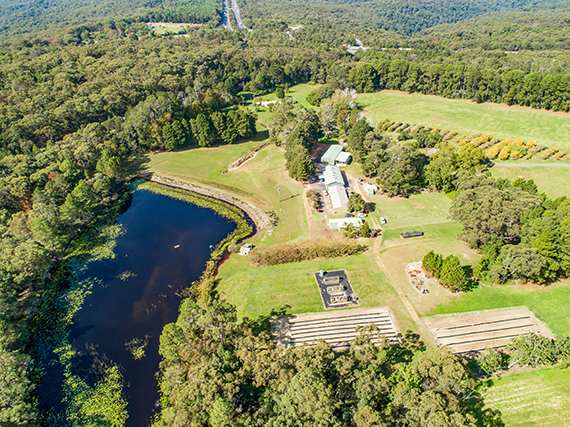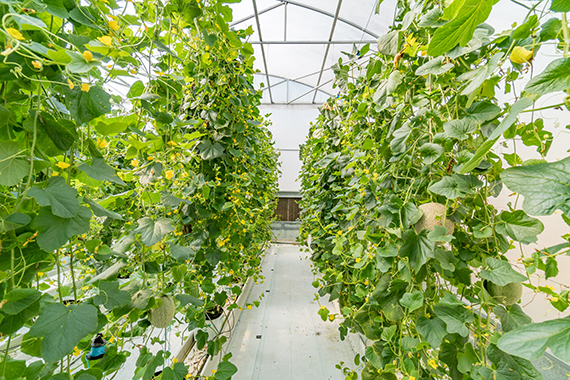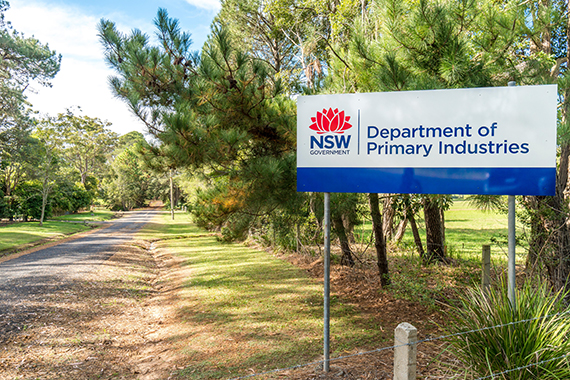
Our facilities and services
Research Services
Protected cropping and intensive horticulture
- Greenhouse and hydroponic research trials to optimise yield and quality of produce (berries and vegetables)
- Improving the management of plant nutrition in fertigated and hydroponic crops
- Improving the pollination of covered crops
Market access and postharvest
- Developing postharvest treatment protocols for export market access
- Fresh produce supply chain solutions for domestic and export markets
- Developing novel postharvest treatments and technologies for fresh produce
- Semi-commercial and commercial trials on new technologies
- Develop and deliver industry-targeted industry best practice guidelines
- Produce quality assessments
- Physiological studies on the storage and shelf-life potential of fresh produce
- Controlled/modified atmosphere and hypobaric storage research
- Sensory and consumer research on horticultural products
- Fruit fly rearing and infestation facilities
- Postharvest disinfestation research (cold treatment, chemical fumigation, irradiation, low-pressure (hypobaric) and combination (hybrid) treatments)
Fresh produce food safety research
- Translational research to mitigate food safety risks to consumers and industries
- Emerging technologies (e.g. cold plasma) for postharvest sanitisation of fresh produce
- Research investigations into the sources and routes of microbial contamination
- Laboratory and field research to develop best practice guides for horticultural food safety
- Food safety monitoring and surveillance to identify and fill the gaps in industry practices
- Molecular detection of foodborne pathogens (e.g. Salmonella species and Listeria monocytogenes) in fresh produce and environmental samples
- Food safety risk assessments and forecasting for the horticulture sector
- Pilot trials on the adoption of blockchain based traceability solutions
- Semi-commercial and commercial trials on new technologies and practices
- Develop and deliver industry-targeted food safety capacity building programs
Plant biosecurity
- Area wide management of crop pests (e.g. Queensland fruit fly) and diseases
- Monitoring and surveillance for crop pests and diseases
- Molecular tools for the detection for plant pathogens and pests
- Integrated pest and disease management research
- Rapid response to the incursions by new pests and diseases
Field research (Somersby field station)
- Soil and orchard management
- Vegetable field trials
- Tea husbandry
- Chemical fumigation research facility
Our research laboratories comply with ISO 9001:2015 Quality Management System and are certified by BSI under certificate number FS 603588.



Infrastructure
CCPIC has state-of-the-art research facilities which are operated and managed by the technical and research staff of NSW DPI.
- The greenhouse complex has 15 individually controlled greenhouse structures covering a total area of 700 m2. The greenhouses are equipped with a fully integrated fertigation and environmental control system
- Hydroponic channel growing capacity is > 300 linear meters for nutrient film technique experimental trials
- 18 Controlled environment rooms (CER) for postharvest, market access and food safety research
- Specialist postharvest fumigation chambers and CERs
- Fruit fly rearing and infestation laboratory
- Food safety laboratory (PC2 certified)
- Plant pathology laboratory
- Entomology laboratory
- Postharvest laboratory
- Somersby field station (78 ha)

